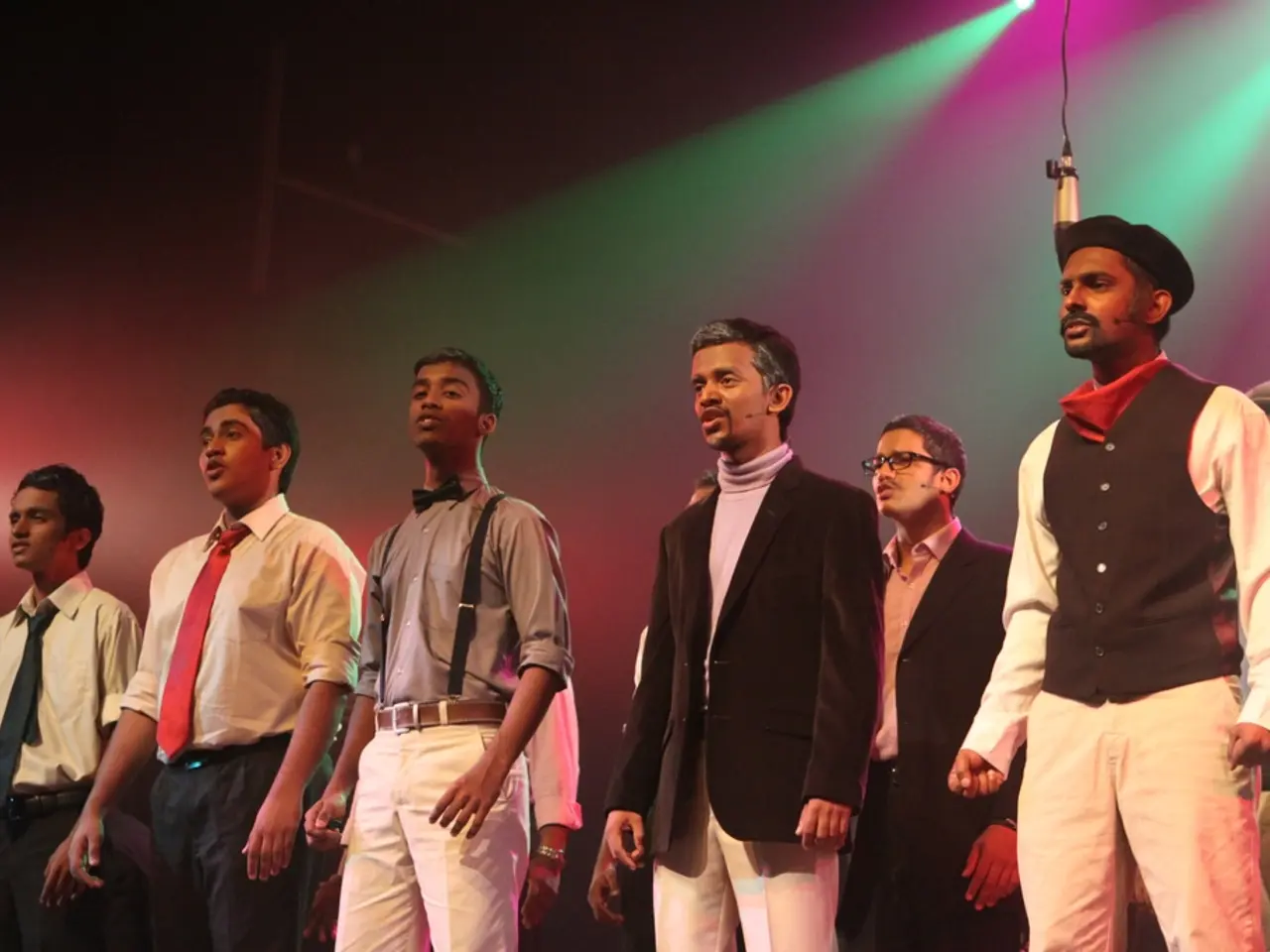Analyzing trends in the selection of films for UK film festivals
Over the past decade, the programming landscape of UK film festivals has undergone significant changes, with several key trends emerging in subject matter preferences, regional representation, and format innovations.
Subject Matter Preferences
There has been a noticeable shift towards diverse and socially impactful stories, including documentaries and films addressing equity, community issues, and marginalized voices. Collections like the Women Make Movies Collection, which highlights independent films by and about women, reflect a broader commitment to gender diversity in programming.
Queer history and culture have also gained prominence, with archival projects and films exploring LGBTQ+ themes becoming more visible in UK film festivals. This trend connects historical and contemporary queer narratives.
Nostalgia and reflection on cultural history have been featured through stylish documentaries that explore underrepresented or forgotten figures in art and culture.
Regional Representation
UK film festivals are increasingly incorporating films that reflect regional identities and cultural diversity within Britain. This trend is evident through the rise of community-focused film projects and collaborations between festivals and community organizations to broaden access and participation.
Emerging Format Trends
Innovative programming includes engagement with new media tools and hands-on opportunities for participants to develop filmmaking skills. Streaming and digital collections have become essential to supplement the festival experience, with curated digital archives and streaming projects representing international and thematic film selections.
There is also a notable move towards hybrid formats that combine archival materials, documentary film, and curatorial storytelling to deepen audience engagement and provide layered viewing experiences.
Key Statistics
- Political documentaries have maintained the strongest presence in UK film festivals, accounting for 28% of all documentary selections at general UK film festivals and 32% at specialized documentary events.
- Festivals that achieved at least 40% BAME representation on their selection committees programmed 43% more films from ethnically diverse filmmakers than those with less diverse decision-makers.
- Edinburgh International Film Festival has developed a distinctive focus on essay films and poetic documentaries, which now comprise 41% of its documentary selections-the highest percentage among major UK festivals.
- The most significant growth in award patterns has occurred in intimate character studies, which have won 37% of major documentary awards despite representing only 19% of selections.
- Sheffield DocFest has doubled its programming of interactive and immersive documentary forms since 2019, while London Film Festival has increased its selection of archive-based historical documentaries by 34%.
- Predictive models suggest UK film festival programming will continue evolving toward more diverse and experimental content, with a focus on unique programming that capitalizes on communal viewing experiences and curator-led discovery.
Current Trends
- The programming share of traditional observational documentaries has experienced the steepest decline, dropping 21% across all UK festivals.
- BFI London Film Festival's targeted programming strategy has increased films from disabled directors by 67% since implementing specific inclusion targets in 2020.
- There has been a 56% increase in platform-sponsored festival sections since 2020, with streaming platforms like Netflix, Amazon Prime, and Apple TV+ establishing significant programming partnerships with major UK festivals.
- Female-directed documentaries have increased their programming share from 38% in 2018 to 47% in 2023, but racial and ethnic diversity statistics demonstrate slower improvement, with BAME filmmakers accounting for just 21% of UK-produced documentary selections in 2023.
- Festivals have increased their selection of formally experimental documentaries by 37% since 2019, while reducing their programming of investigative documentaries by 22%.
- Glasgow Film Festival's development pipeline for underrepresented filmmakers has resulted in a 54% increase in programmed films from first-time directors from marginalized backgrounds.
- The number of exclusive premiere opportunities for UK festivals declined by 43% between 2018 and 2023 due to streaming services acquiring documentary content.
In summary, UK film festivals over the last decade show increased programming of diverse, socially relevant subject matter, enhanced regional inclusivity, and experimentation with innovative formats and educational engagement. This evolution reflects wider cultural shifts toward inclusivity, digital access, and community involvement in film culture.
- The Women Make Movies Collection, highlighting independent films by and about women, indicates a broader commitment to gender diversity in film programming.
- Archival projects and films exploring LGBTQ+ themes have gained prominence in UK film festivals, connecting historical and contemporary queer narratives.
- Stylish documentaries that explore underrepresented figures in art and culture are being featured in UK film festivals as a means of reflecting on cultural history and nostalgia.
- UK film festivals are increasingly incorporating films that reflect regional identities and cultural diversity within Britain, with community-focused projects being a key component.
- Streaming and digital collections have become essential to supplement the festival experience, with curated digital archives and streaming projects representing international and thematic film selections.
- There is a notable move towards hybrid formats that combine archival materials, documentary film, and curatorial storytelling to deepen audience engagement and provide layered viewing experiences.
- Learning and skills training opportunities are emerging in UK film festivals, with hands-on opportunities for participants to develop filmmaking skills through innovative programming.




